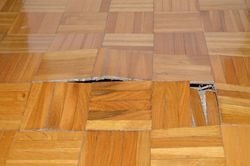
When you’re relocating to a new apartment, the expenses can be substantial. Therefore, you might be counting on the security deposit from your last lease being returned to you. But what if your landlord decides to deduct from it, or keep the money entirely? Use the following property law guide to prepare for these unfortunate scenarios.
What Is a Security Deposit?
When you sign a lease for a rental apartment, you’ll be required to put down a security deposit — a lump sum that is held to motivate you to maintain the condition of the unit. This is separate from any rent payments you are required to produce upfront,
In Connecticut, security deposits should never be more than two months’ worth of rent. If you are 62 or older, the deposit can’t be more than one month’s rent.
What Can a Landlord Deduct From It?
 The security deposit is meant to encourage tenants to avoid damaging their rental units and to fix any minor damages they might make—such as holes in the wall for hanging frames—before moving out.
The security deposit is meant to encourage tenants to avoid damaging their rental units and to fix any minor damages they might make—such as holes in the wall for hanging frames—before moving out.
If any damages are discovered when the landlord inspects the apartment after move-out, the landlord can deduct from the original sum. If you miss a rent payment, the deposit may also be kept to make up for this debt.
What Happens When a Landlord Unlawfully Withholds or Delays Payment?
While you’re living in the apartment, the security deposit is kept in an escrow account. In Connecticut, landlords must return the deposit with the interest it accumulated during your stay. If they don’t provide the interest, they can be sued.
As long as you have provided your new address in writing to the landlord, and you have not incurred damage to the old apartment, they must not withhold payment. If more than 30 days have passed since move-out and the landlord hasn’t returned the money or provided an itemized list of deductions, you can hold your landlord liable for twice the interest.
Take photos of the cleaned and emptied unit before you move out in case your landlord wrongfully accuses you of damage. Take photos of issues as soon as you enter a new apartment, in case there were already damages when you moved in. That way, a landlord can’t claim you created them.
If you’re looking for help handling the complex details of property law, turn to Stuart R. Norman Jr. of Jewett City, CT. This attorney has over 40 years of experience helping local residents stand up for their rights. In addition to property law, he also works in practice areas like elder and estate law. To learn more about his services, visit the website. You can also call (860) 376-0069 to schedule a consultation today.
About the Business
Have a question? Ask the experts!
Send your question

